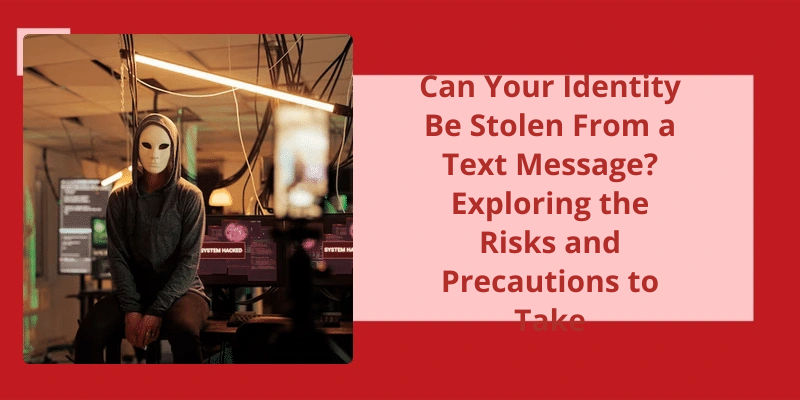Ghosting is a perplexing and increasingly common phenomenon in today's digital dating landscape. Defined as the sudden and complete cessation of communication, ghosting is a chilling act that leaves the recipient of this unfortunate digital disappearance perplexed and hurt. It’s a form of relationship dynamics that can be emotionally devastating, leaving individuals questioning their worth and searching for answers that may never come. The term "he started ghosting me" encapsulates the bewildering experience of being abruptly abandoned and cast aside without so much as a hint of explanation or closure. Such a baffling act raises questions about the complexities of modern relationships, the power dynamics at play, and the deeper emotional ramifications of this digital vanishing act. In this exploration of relationship dynamics, we delve into the meaning and implications of ghosting, aiming to shed light on why individuals resort to such a callous form of disconnection and the profound impact it can have on those left in it’s wake.
What Does It Mean When You Get Ghosted by a Guy?
What does it mean when you get ghosted by a guy? Ghosting is when someone who used to be friendly or even romantic with you suddenly cuts off all communication without explanation. It can be a confusing and hurtful experience, leaving you feeling abandoned and unsure of what went wrong. While most people think of ghosting in a digital context, meaning a friend or dating partner stops responding to texts, emails, calls, etc., it can happen across all social circumstances.
It can be frustrating because it leaves you with unanswered questions and wondering what you did wrong. It can also make you doubt yourself and your worth, as you question why someone would abruptly cut off contact without any explanation or closure.
It’s important to remember that ghosting says more about the other person than it does about you. It reflects their inability to communicate openly and honestly, and their unwillingness to confront any issues or concerns they may have.
While it’s natural to want closure and understand why you were ghosted, it’s important to recognize that sometimes you may never get an explanation. Instead of dwelling on it, try to focus on yourself and your own well-being. Surround yourself with supportive friends and family who can help lift your spirits and remind you of your worth.
It can leave you feeling confused, hurt, and rejected.
When someone abruptly stops responding or cuts off communication without explanation, it can be a sign of a weak or strained connection. Ghosting serves as a warning that we may be losing the affection or connection we once had with that person. It indicates that either they’re playing a manipulative game or simply don’t care about us in the present moment.
Is Being Ghosted a Red Flag?
Being ghosted can be a devastating experience, as it signifies a breakdown in communication and connection between two individuals. It’s indeed a red flag, indicating that something is amiss in the relationship dynamics. When someone ghosts you, it can imply that the connection you once shared with them has weakened or strained to the point where they no longer feel compelled to maintain contact.
It suggests that they may not value or prioritize the connection as much as they once did or as much as you do. It can leave you questioning your worth and desiring answers that may never come.
However, it’s important to recognize that ghosting often says more about the person who engages in it than it does about you as an individual. It isn’t a reflection of your worth or value in any capacity. It’s crucial to remember that you deserve someone who’ll communicate openly, honestly, and respectfully with you.
How to Cope With Being Ghosted and Move on
- Allow yourself to feel your emotions
- Focus on self-care and self-improvement
- Reach out to friends and family for support
- Avoid blaming yourself or over-analyzing the situation
- Engage in activities that bring you joy and distract your mind
- Set new goals and aspirations for yourself
- Consider seeking professional help or therapy if needed
- Remember that being ghosted doesn’t define your worth
- Stay open to new opportunities and experiences
Ghosting behavior can reveal a lot about a man’s character and emotional state. It often signifies poor communication skills, immaturity, and a lack of empathy. Fear of commitment, a strong aversion to conflict, or exhibiting avoidant behavior may also be contributing factors. Understanding these underlying issues can provide valuable insights into a man’s emotional well-being and readiness for a healthy relationship.
What Ghosting Says About a Man?
When a man starts ghosting someone, it reveals certain aspects of his character and emotional maturity. Ghosting behavior is often a direct reflection of communication issues that he may be facing. It suggests a lack of effective communication skills and an inability to express his feelings or intentions clearly. Instead of having an open and honest conversation about his changing feelings or intentions, he chooses to disappear without any explanation.
When a man ghosts someone, he shows a disregard for the impact his actions may have on the other person. He fails to consider the emotional turmoil they may experience as a result of being ignored and left without closure. This lack of empathy reflects a self-centered approach to relationships and a disconnection from the emotional needs of others.
They may feel overwhelmed by the idea of being emotionally vulnerable or fear getting hurt.
Aversion to conflict is another contributing factor to ghosting. Rather than facing the potential disagreements or uncomfortable discussions that may arise, they opt for the silent exit. This behavior reflects an avoidance of conflict resolution and a preference for taking the easy way out.
Understanding these underlying factors can shed light on the deeper aspects of a mans character and emotional state. However, it’s important to note that generalizations should be avoided, as each individual and situation is unique.
Source: What Ghosting Says About You – Simply Psychology
They may also ghost due to a lack of emotional investment or a fear of hurting the other person’s feelings. Whatever the reason, the aftermath of ghosting can leave men feeling a range of negative emotions as they reflect on the impact of their actions.
What Do Men Feel After Ghosting?
However, once the initial avoidance is over, they may start to reflect on their actions and realize the impact it had on the other person. This realization can lead to feelings of guilt, as they may understand the hurt and confusion they caused.
Additionally, men who’ve ghosted someone may also experience feelings of shame. They may feel embarrassed or ashamed of their behavior, especially if they were aware of the emotional investment the other person had in the relationship. This shame can stem from a recognition that they didn’t handle the situation in a respectful or mature manner.
Remorse is a deep regret or sorrow for past actions, and it can manifest as feelings of sadness and regret. Men who ghosted someone may experience remorse as they come to terms with the pain they inflicted on the other person.
These feelings may arise as they reflect on the impact of their actions and recognize the hurt they caused. It’s important for individuals to acknowledge and process these emotions in order to foster personal growth and learn from their past behaviors.
While it’s generally advised to silently move on from someone who repeatedly ghosts you, there may be instances where seeking closure or understanding is important. In such cases, sending one final text to your ghoster might offer some clarity or resolution.
How Do You Respond to a Guy Who Keeps Ghosting You?
When faced with a guy who repeatedly ghosts you, it’s essential to consider the best way to respond. While it can be tempting to lash out or seek closure, the most effective approach might surprise you: say nothing and move on. Ghosting is a clear indication that someone isn’t interested or lacks the maturity to address their feelings directly. By refusing to engage further, you protect yourself from unnecessary emotional turmoil.
That being said, if you strongly believe that your ghoster can provide an explanation that would bring you closure, you may choose to send one last text. Keep in mind that this approach should be handled delicately. It’s crucial to set your expectations appropriately and be prepared for the possibility of receiving an unsatisfying response or no response at all. Remember, you’re seeking closure for yourself, not necessarily for the ghosters benefit.
When crafting your last text, stay calm, respectful, and concise. Express that you deserve an explanation for their behavior and simply ask if they’re willing to provide one. Avoid any accusations or confrontational language, as it’s unlikely to yield positive results. Understand that even if you send this message, there’s no guarantee of a response, and you should be mentally prepared to let go and move forward regardless of the outcome.
Recognize that someone who engages in ghosting behavior may not have the emotional maturity or capacity for a healthy relationship. By maintaining your dignity and moving on, you open yourself up to new possibilities and relationships with individuals who value and respect you. Remember, your happiness and self-worth should never be compromised for someone who can’t reciprocate your feelings.
The Potential Reasons Why Someone Might Ghost.
Ghosting refers to the act of abruptly cutting off all communication with someone without any explanation or warning. While it can be hurtful and confusing, there are several potential reasons why someone might choose to ghost another person:
1. Fear of confrontation: Some individuals may avoid difficult conversations or confrontation and opt to ghost instead.
2. Lack of interest or compatibility: If someone is no longer interested or feels incompatible with the other person, they may choose to ghost as a way to end the relationship without having to explain their feelings.
3. Emotional unavailability: Individuals who struggle with emotional intimacy and commitment might resort to ghosting as a way to protect themselves from potential emotional pain or vulnerability.
4. Busy or overwhelmed: Sometimes, people may become overwhelmed with their own lives and responsibilities, leading them to unintentionally ignore or cut off communication with others.
5. Lack of communication skills: Some individuals may simply lack the necessary communication skills to express their feelings or concerns effectively, resulting in ghosting as the default option.
While ghosting can be hurtful, it’s important to remember that it says more about the person who chooses to ghost than the person being ghosted. If you’ve been ghosted, it’s best to focus on self-care and surrounding yourself with supportive people who value your worth.
Conclusion
This form of emotional disappearance, often referred to as ghosting, signifies a profound shift in the way we communicate and relate to one another. This seemingly innocuous act can leave the recipient feeling perplexed, rejected, and sometimes even questioning their self-worth. As society becomes increasingly reliant on technology and virtual communication, the prevalence of ghosting highlights the importance of honest and compassionate interactions, reminding us of the significance of open communication and consideration for one another's emotions in fostering healthy relationships.






